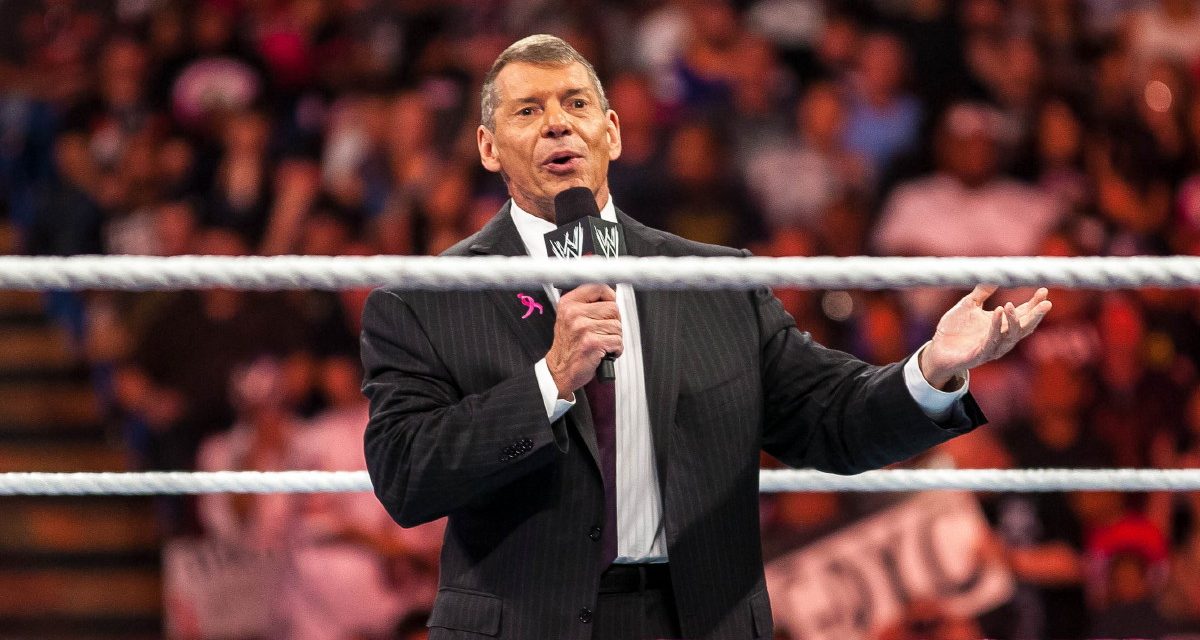It is an end of era for World Wrestling Entertainment.
Vince McMahon, the chairman and chief executive officer (CEO) of WWE and its creative head has announced his retirement from the company.
“As I approach 77 years old, I feel it’s time for me to retire as Chairman and CEO of WWE. Throughout the years, it’s been a privilege to help WWE bring you joy, inspire you, thrill you, surprise you, and always entertain you. I would like to thank my family for mightily contributing to our success, and I would also like to thank all of our past and present Superstars and employees for their dedication and passion for our brand. Most importantly, I would like to thank our fans for allowing us into your homes every week and being your choice of entertainment. I hold the deepest appreciation and admiration for our generations of fans all over the world who have liked, currently like, and sometimes even love our form of Sports Entertainment,” he said in a statement.
McMahon’s announcement comes as the WWE board of directors and several law firms are investigating McMahon’s alleged settlements to silence several women he is alleged to have had affairs with.
Nowhere in the press release does it address the fact that McMahon is still the majority shareholder in the public-traded company. He is apparently stepping away as the head of creative (even if that was an honorary title).
“Our global audience can take comfort in knowing WWE will continue to entertain you with the same fervor, dedication, and passion as always. I am extremely confident in the continued success of WWE, and I leave our company in the capable hands of an extraordinary group of Superstars, employees, and executives – in particular, both Chairwoman and Co-CEO Stephanie McMahon and Co-CEO Nick Khan. As the majority shareholder, I will continue to support WWE in any way I can. My personal thanks to our community and business partners, shareholders, and Board of Directors for their guidance and support through the years. Then. Now. Forever. Together,” he continued.
Today, it was also ann0unced that Paul Levesque (Triple H) will resume his executive position as EVP, Talent Relations.
The position of EVP, Talent Relations was held by John Laurinaitis who is now under investigation by the WWE board of directors for alleged misconduct.
Bruce Prichard was serving as the Interim Head of Talent Relations.
Vincent Kennedy McMahon got into the wrestling business, following his father’s footsteps. The younger McMahon worshipped Dr. Jerry Graham and loved Bobo Brazil, and had the professional wrestling business in his blood.
“I’ll probably live somewhere beyond 100 and, every day that I do, I’ll be in this business. I love this business,” McMahon said in 2008. “I’m third generation in this business. It really is in my soul and I love to perform. I love to entertain and that’s what all of our performers love to do. You can’t give your audience enough and they can recognize that and appreciate that, so again, it’s a love of what I do. I mean I always say I never go to work because nothing I ever do is work.”
McMahon grew up poor in North Carolina with his mother and a series of stepfathers, in an eight-foot-wide trailer. He didn’t meet his father, Vincent James McMahon, until he was 12 years old. The senior McMahon had followed in his own father’s footsteps, Jess McMahon, and promoted professional wrestling. In 1972, armed with a degree in marketing from East Carolina, “VKM” was invited to join the family business, starting with a small arena in Bangor, Maine.
Having helped his father’s World Wide Wrestling Federation grow, McMahon gambled and, with partners that included Gorilla Monsoon (Gino Marella) and Phil Zacko, bought the promotion in 1982, taking it national by boldly buying up television time to promote his product, raiding talent and crossing traditional territorial boundary lines.
“He virtually changed the landscape of the entire industry, taking it in a whole new, different direction,” said journalist Mike Mooneyham. “Pre-Vince it had always been this shadowy world, the secret society that everyone took these oaths to protect . . . He took the business Hollywood.”
The World Wrestling Federation grew and grew, though not without its hiccups (a federal steroid trial of McMahon, sexual harassment allegations), and missteps (a football league and a bodybuilding federation). Eventually it became such an international success, that the WWF was forced by the World Wildlife Fund to re-brand itself World Wrestling Entertainment.
Riding crossover superstars such as Hulk Hogan, Stone Cold Steve Austin and The Rock to unheard of heights and successes, WWF went public in 1999, with McMahon remaining the primary shareholder. With the collapse of the competing ECW and WCW in 2001, McMahon truly was the most powerful man in wrestling history.
On screen, he went from a bulky, canary-yellow suit wearing announcer, who would have wrestlers stand on crates alongside him to mask his height, to Mr. McMahon, a maniacal extension of his own personality, an evil boss that the world found easy to hate and connect with. Wrestling in his 60s, McMahon proved that he was no wannabe either, delivering credible performances and pay-per-view buyrates.
In proper perspective, his legacy is taking professional wrestling — even if he may not call it that — to unprecedented heights, enriching his employees, shareholders and fans in the process.
— with files from Greg Oliver
RELATED LINKS

